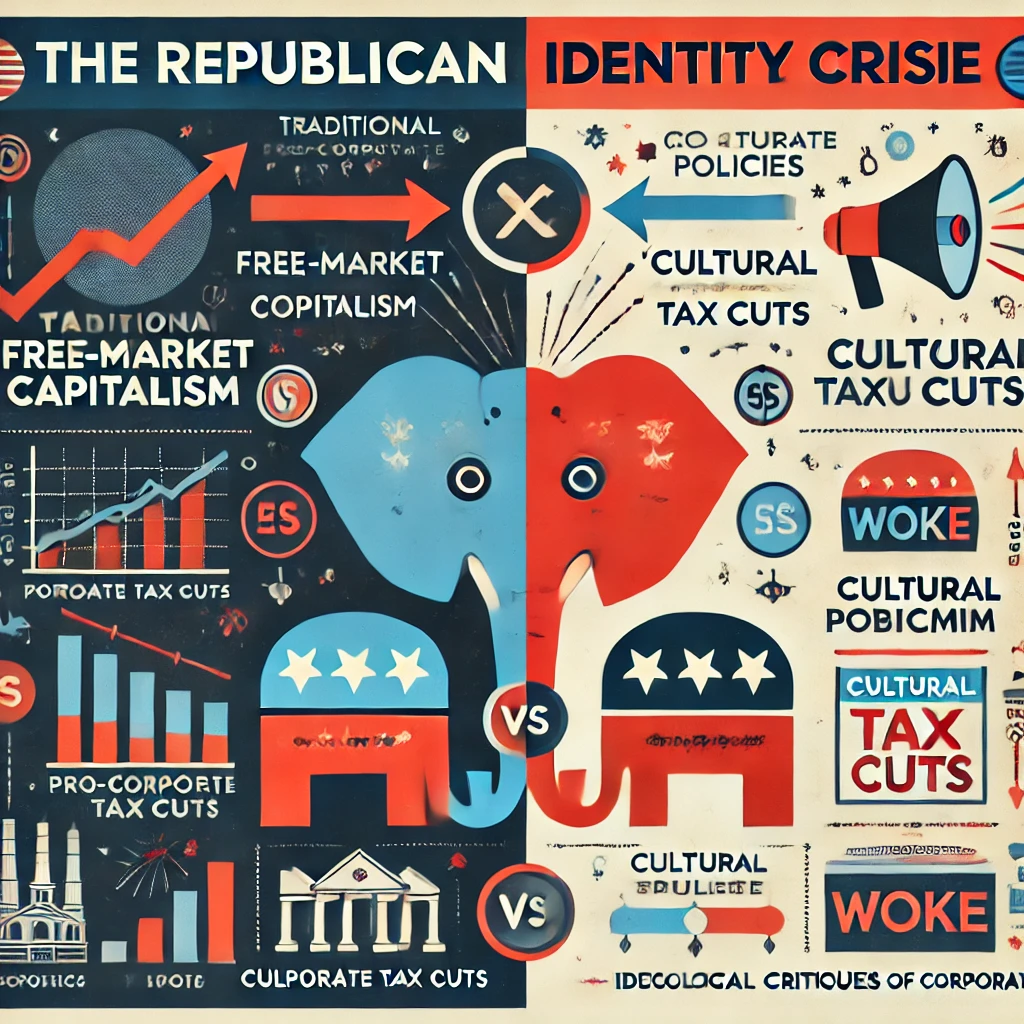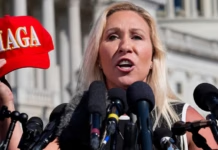The Republican Party has long championed free-market capitalism, rooting its economic policies in the belief that empowering businesses fosters prosperity for all. Lower taxes, minimal regulation, and an unwavering defence of corporate profits have defined the party’s economic philosophy for decades. Yet, in recent years, a striking contradiction has emerged within Republican rhetoric: a sharp critique of corporations that have seemingly strayed from the party’s cultural ideals. This clash between traditional economic orthodoxy and populist discontent raises an unsettling question—what does the GOP stand for in today’s political landscape?
Donald Trump’s presidency was, in many ways, the pinnacle of Republican economic dogma. Sweeping corporate tax cuts and deregulation were presented as a blueprint for economic growth, underpinned by the long-standing “trickle-down” theory: when businesses profit, society prospers. But as corporate profits soared, something unexpected happened. Instead of celebrating this success, Republicans began to vilify some of the very corporations they sought to empower. Companies taking public stances on social justice, environmental sustainability, or LGBTQ+ rights suddenly found themselves in the crosshairs of conservative leaders and media outlets. The critique wasn’t economic—it was cultural.
The roots of this tension lie in the rise of a populist wave within the party, which has shifted focus from pure economic conservatism to cultural identity politics. While the GOP remains committed to policies that allow corporations to thrive, it increasingly demands ideological loyalty in return. Corporations that promote diversity initiatives or ESG (environmental, social, and governance) strategies are branded as “woke” and accused of betraying traditional American values. Ironically, these criticisms often target the very companies that benefit most from Republican-led economic policies.
This emerging Republican economic identity crisis is both ideological and practical. On one hand, the party clings to its foundational belief in the free market, championing deregulation and tax cuts. On the other, it expects corporate America to operate within a cultural framework that aligns with conservative ideals, often at odds with the evolving social landscape. This creates a paradox: Republicans celebrate corporate freedom but criticise how that freedom is exercised when it conflicts with their priorities.
The disconnect grows even more glaring when considering the broader premise of supply-side economics. If corporate profitability is the engine of societal progress, as Republicans have long argued, then attacking corporations for how they spend their profits undermines that very premise. It begs the question: is the Republican Party’s embrace of trickle-down economics conditional on ideological conformity? And if so, what happens to the integrity of their free-market ideals?
This economic identity crisis signals a deeper ideological reckoning within the GOP. The party can’t continue to advocate for corporate success whilst simultaneously demanding companies prioritise political neutrality—or worse, alignment with conservative values. To do so risks alienating both traditional pro-business conservatives and the populist base now fuelling much of the party’s momentum.
If the Republican Party wishes to maintain its identity as the champion of capitalism, it must reconcile these contradictions. Either it embraces the principles of free enterprise, even when corporations act in ways that challenge conservative ideals, or it admits that its economic philosophy is no longer about market freedom but about enforcing cultural cohesion. In its current state, the GOP risks sending a message that its support for capitalism is not about economic prosperity but about ideological compliance.
In the end, the Republican Party’s future may hinge on how it resolves this identity crisis. Will it remain the party of free markets, celebrating corporate success even when it comes with social and cultural differences? Or will it transform into a populist movement where economic policy is subordinate to cultural warfare? For now, the GOP appears content to straddle the line, but as the cracks widen, it may find itself unable to sustain both sides of this house divided.





